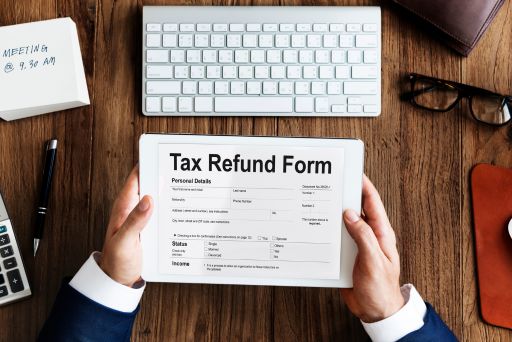In 2021, the average tax refund was $3,039. Small potatoes? Hardly, especially given the economic downturn of the last couple of years.
New small business owners may be hopeful for a tax refund, a small gift to invest back into their operations. Not all types of small businesses can receive tax refunds, however. Is yours one of them?
Do small businesses get tax refunds? It’s one of the most common questions we receive—in the same way that there are many types of taxpayers, you’ll find there are more than a few types of small business tax entities.
Which Businesses Are Eligible for Refunds?
In general, your tax refund eligibility depends on whether you’ve paid more taxes than you owed, at least as an individual. While the same is loosely true for businesses, only C-corporations are entitled to tax refunds in their own rights.
The business entity you choose may influence your tax eligibility significantly, so we recommend choosing yours wisely from the outset. If your entity type passes your income directly onto you, the owner, you’ll be the one receiving the refund on its behalf. Sole proprietorships, partnerships, S-corporations, and limited liability companies (LLC) are all beholden to this convention and, accordingly, are not eligible for tax refunds on their own in any capacity.
If your business is a C-corp, all your revenue is taxed separately from your personal finances. C-corporations that have overpaid payroll or sales taxes, for example, are likely to see a tax refund at the end of the year.
Different Types of Taxes Businesses Pay
Small businesses pay many types of taxes in the United States. Among them:
- Federal taxes
- State taxes
- Local taxes
- Self-employment taxes
- Payroll taxes
- Income taxes, both state and local
- Excise taxes
- Property taxes
- Sales taxes
How to Maximize Your Tax Refund
As a small business owner, there are plenty of ways you can maximize your tax refund every year:
- Review your bank and credit card statements
- Prepay upcoming expenses
- Check for tax credits you may be entitled to
- Offer matching 401(k) benefits
- Reward employees generously
- Check for a home office deduction
- Track your mileage and other expenses
Business tax credits may be particularly lucrative for your small business. You may also benefit from other subsidies, such as research and development tax credits, credits designed to assist in employee leave, and work opportunity tax credits for those who hire marginalized individuals.
Your Small Business Accountants and Bookkeepers
Do small businesses get tax refunds? The short answer: It depends. For the full answer, consider Vyde for all of your accounting needs.
It’s a lot of ground to cover; that can’t be denied. If you’re an entrepreneur looking for the best possible outcome, we would love to hear more about your story and assist in any way we can.








 If you were uninsured in 2015, you may owe a penalty on your taxes this year. However, you can still save money by claiming an exemption, which about 70% of Americans are doing in 2016. A whopping 300,000 people who paid the penalty last year would have qualified for the exemption, according to the IRS. No worries, Mazuma won’t let that happen to you. Here is the good news and the bad news about being uninsured in 2015.
If you were uninsured in 2015, you may owe a penalty on your taxes this year. However, you can still save money by claiming an exemption, which about 70% of Americans are doing in 2016. A whopping 300,000 people who paid the penalty last year would have qualified for the exemption, according to the IRS. No worries, Mazuma won’t let that happen to you. Here is the good news and the bad news about being uninsured in 2015.







